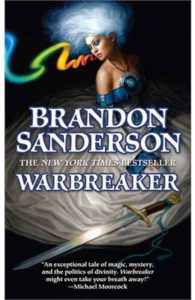A guest post by Tonya L. De Marco
Do I keep a depraved soul locked in my subconscious, caged unable to act on her desires? Is there a past-life sister sharing her memories with me, breathing life into my characters and infusing them with her ideals of right and wrong? Is it just good old-fashioned curiosity about what makes such characters tick? Do I admire their freedom, their lack of concern for the moral and ethical shackles that bind most of mankind?
I try not to delve too deeply within myself seeking the answers. It’s likely I have a sympathetic personality or a very open mind that allows these characters to speak to me. I give them free reign through my writing. My voice is their voice.
My stories are dark, often with twisted characters and an erotic flavor. No subject is taboo. Incest, rape, murder, cannibalism, mental illness, sacrilege, and acts against children can all be found in my published work or my work in progress. These atrocities occur in the world, I see no reason not to include them in fiction. These are the stories that need to be heard. They are the tales I’m meant to tell.
Traveling through Wyoming on a return trip home from a convention, I encountered a new character and found inspiration. Now known as the Wyoming Frontier Prison Museum, we stopped in Rawlings to take a tour of what served as the territorial prison from 1901-1981. The imposing stone facade and high wall surrounding the yard were daunting, but it’s what transpired inside the fortress that still haunts me.
Stepping into cell block A, the oldest part of the prison, was an immediate shock. A chill permeated my body seeping into the very core of my bones. I wanted to weep, cry out, and run all at the same time but something held me immobile. The silent screaming of the tortured souls of the past invaded my mind and my being. I was overwhelmed with emotion flooding in all at once; hopelessness, fear, anguish, depression. I felt smothered, suffocated, controlled. The feeling of oppression was a palpable weight on my shoulders. It was as if I was being buried alive.
Collecting myself enough to follow along with the tour, the sense of straddling a line between the different times hung with me. As the guide recounted stories of some of the prison’s infamous inmates, their images played out before me as if etched on a veil hanging over my eyes. The prisoners endured remarkably deplorable and harsh conditions – cramped quarters, no heat, constant threat of violence, a cement ledge as a bed, persons convicted of petty offenses in the same general population with the most depraved criminals. The lives and circumstances of the prisoners intrigued me. I have to admit, I felt a level of respect for anyone able to survive in the inhumane situation.
I was particularly drawn to the history of a young woman inmate convicted of killing her father and incarcerated in the prison in 1908. Annie was sentenced when she was only fourteen years of age. The museum had some of her letters on display enabling me to learn more about Annie. Her voice spoke to me across the lines of time.
After returning home, I couldn’t shake the uneasy feelings I’d experienced. The sadness and hopelessness clung to me like a shroud. Deciding to immerse myself in the darkness rather than try to avoid it, I did some more research on Annie.
Annie’s letters give no indication that she was remorseful. She writes, “….a feeling or a wish came over me to kill someone and this feeling, I could not resist.” She was housed in the facility approximately a year then transferred to Colorado where she finished out most of her four year sentence before receiving a pardon. Annie’s life before and after the murder and incarceration, by all accounts I’ve found, was unremarkable. She went on to marry and have children and live a normal, quiet life until her death in 1975.
The story I’m writing is fiction so it’s inspired by Annie rather than based on her. All manner of horrific events will happen to my character, Anna, before the murder, during her stay in the prison, and after her release. I have to let go of all the emotion that overwhelmed me that day at the prison. My way of accomplishing that is to write about it. Feel the feelings and move past them as I let the characters I write experience the emotion for me.
Unlock the locks, throw open the doors, uncage the dark demons of your mind. Give them a voice through your pen and let them tell their stories. Maybe they’ll connect with the darkness in the readers and you’ll have a best-seller!
To learn more about the museum and Annie, follow the links below:
- http://www.wyohistory.org/encyclopedia/wyomings-first-state-prison
- http://www.wyomingfrontierprison.org/docs/anniebruce.pdf
 Tonya L. De Marco is a Costume Designer, Cosplayer, published Model, and published Author. She splits her time between the Ozark Mountains of Missouri and the Rocky Mountains of Colorado.
Tonya L. De Marco is a Costume Designer, Cosplayer, published Model, and published Author. She splits her time between the Ozark Mountains of Missouri and the Rocky Mountains of Colorado.
You can visit Tonya on her Amazon Author Page, her Instagram page, her Facebook page, or on her website, TonyaLDeMarco.com.





